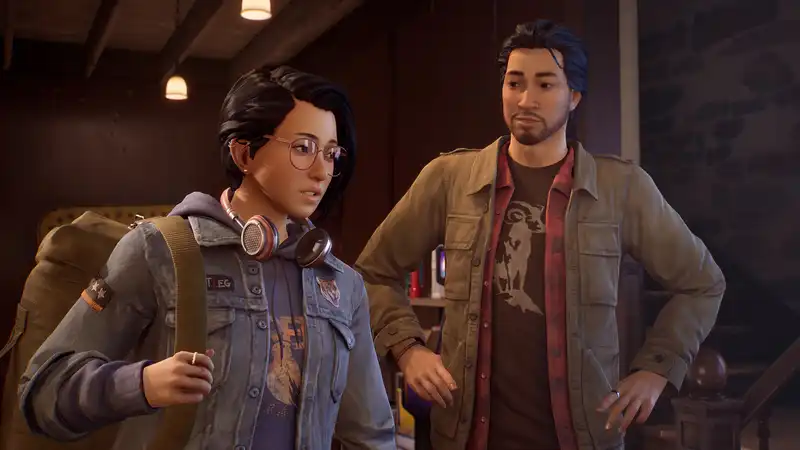A new IGN report on Deck Nine, the studio behind Life is Strange, has been posted: publisher Square Enix was so reluctant to embrace the series that it told the studio that it did not want Life is Strange to become known as a "gay game." There are some surprising claims that they were reluctant to embrace the underlying themes.
The first Life is Strange game, released episodically through 2015, was developed by Dontnod; the sequel, Life is Strange 2, released in 2018, was also developed by Dontnod Deck Nine produced the 2017 prequel, Life is Strange produced: Before the Storm" and the 2021 sequel "Life is Strange: True Colors. "It's a bit of an odd situation, with Infinity Ward and Treyarch going back and forth, but it's not a military shooter, it's a narrative It is not a military shooter, but an adventure game with a narrative.
The latest in the series, "True Colors," is a critically acclaimed game featuring Alex, a young woman whose empathic abilities allow her to feel and even absorb the emotions of those around her. Heavy stuff, but very well handled: "It's a story about a young queer woman who can unashamedly cry, scream, and experience the joy of being free of shame, which is incredibly special," we said in 86% of our reviews.
Pride magazine shared the same sentiment, calling it "the must-play queer game of 2021," and GLAAD won the "Outstanding Video Game Award" at the 33rd annual GLAAD Media Awards. In other words, it's a pretty queer game.
Square Enix apparently wanted to avoid this result. According to the report, the publisher was very hands-on with the script, and several sources told IGN that Square Enix told the developers that they did not want "True Colors" to be considered a "gay game."
In a statement provided to IGN, Deck Nine said in part that it is committed to "supporting diversity."
"Storytelling is a collaborative process, and we work closely with all partners throughout development to deliver a narrative experience that is true to the pillars of the product that we are all proud of," the studio said, adding, "As is often the case in the creative process, the final cut Some ideas make it, some don't. We remain committed to supporting diversity and telling the stories of historically underrepresented groups in our games.
Life is Strange: True Colors has won numerous awards for its storytelling and performances and has been praised for its unabashedly positive representation of queer characters. If Square Enix wanted to avoid such representation, it suggests either a complete misunderstanding of the game or deliberate hostility. In any case, it is noteworthy that "True Colors" ultimately emerged so strongly.
This is especially true given the other challenges faced by Deck Nine employees cited in the report: toxicity from senior developers and management's indifference to it; tight deadlines and tight weeks on a shoestring budget; new projects for Life is Strange includes allegations of racist memes and the strange and unexplained appearance of Nazi symbols in
Deck Nine also suffered layoffs in February, with the studio's workforce at just over half of what it was when "True Colors" was developed; you can read the full story at IGN.


Comments